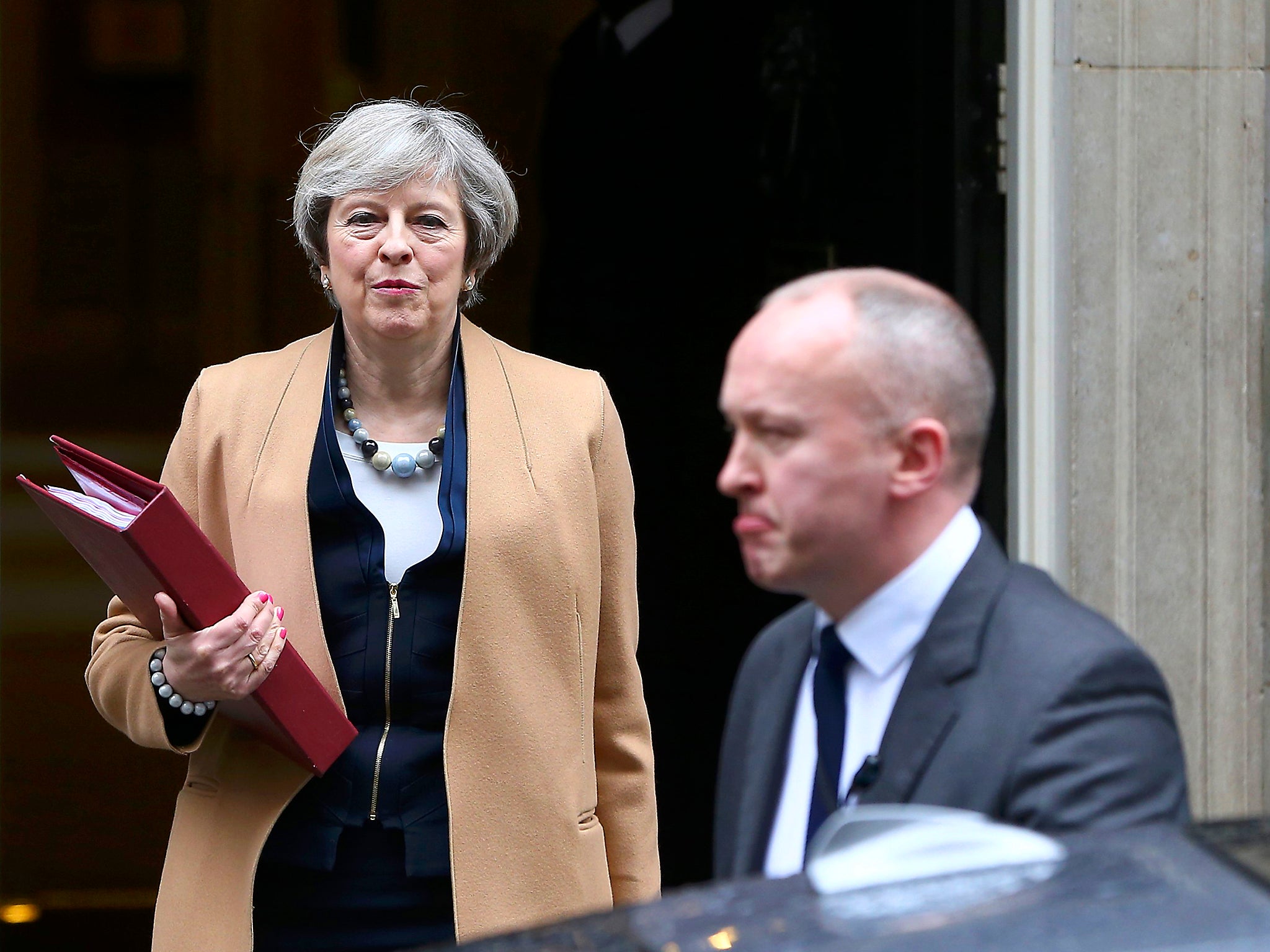If Theresa May is so concerned about ordinary working families, why doesn’t her Budget show it?
The Great Squeeze is coming and family finances are likely to prove more of a headache for May and Hammond than the public finances


Philip Hammond talked a lot in his first Budget about “fairness”, building an “economy that works for everyone” and, of course, the “ordinary working families” championed by Theresa May. But there were precious few measures to help her target group.
The Chancellor trumpeted measures already in the pipeline that will benefit them from next month, such as more state help with childcare and a welcome rise in the national living wage. He somehow forgot to mention that a big slice of the £12bn welfare cuts he inherited from George Osborne will also take effect in four weeks’ time.
They include a £3bn squeeze to tax credits for households with children, and a £650m cut for disabled people capable of doing some work. New claimants of Employment and Support Allowance in this group will receive £73 instead of £102 a week.
The Treasury may regard these measures as “old news”, part of the drive to get the deficit down. But the cuts will be new and very unwelcome news to the millions of “ordinary working families” hit by them next month.

A freeze in working age benefits will last for another three years. This is worse than it sounds; with inflation forecast to rise to 2.4 per cent this year, it is an even deeper cut which quietly brings in more revenue for the Treasury. Although allies talk up Hammond’s reforming credentials, he did nothing to address the inequity of the “triple lock” which ensures that those on the state pension are fully protected against inflation while younger people are not. He could have extended national insurance contributions to wealthy pensioners while he raised them for the self-employed.
The Chancellor did remarkably little for May’s target audience.
He could have alleviated the pain of the welfare cuts by using the higher tax receipts and lower borrowing since his autumn statement in November. Instead he raised taxes for the self-employed to satisfy the clamour by Conservative MPs for action to help firms facing business rate rises, and applied £2bn of sticking plaster over three years that will not solve the crisis in social care.
The Chancellor noted, with some relief, Office for Budget Responsibility (OBR) projections that wages growth will – just – outstrip inflation over the next five years. But it will not feel like that for millions of hard-pressed families. Again, Hammond did not mention the OBR’s new forecast that “real household disposable incomes are expected to stagnate in 2017”. Those at the sharp end already feel the pinch from price rises in shops and spend a larger proportion of their incomes on food, petrol and energy than more affluent families.
The Great Squeeze is coming and family finances are likely to prove more of a headache for May and Hammond than the public finances. The number crunchers from the Institute for Fiscal Studies (IFS) and Resolution Foundation will pore over the Budget small print as they work through the night tonight so that they can tell us the real winners and losers tomorrow. But Hammond did little to change the IFS’s assumption that Britain is in the grip of the most sustained slowdown in income growth since comparable records began in 1961, with low income families the hardest hit. The foundation has warned that in 2021, average earnings might be only just above their level 15 years earlier, just before the global financial crisis, describing such a squeeze as “catastrophic”.
True, low paid self-employed workers stand to benefit from Hammond’s decision to bring the tax paid by the self-employed into line with other workers. But the low paid will not be the main beneficiaries of the income tax cuts confirmed in the Budget, which will see the personal allowance rise to £11,500 and the 40p threshold increase to £45,000 next month.
Those on low incomes also depend on public services and do not have the option of going private. Although the cash boost to social care will relieve some pressure on hospitals, an NHS cash crisis is still coming. The mounting financial problems in schools today will not be eased by promises of new schools in a few years’ time.
Hammond will need to dip into his £60bn war chest before the next general election if the Tories are to convince “ordinary working families” that May’s actions match her words. Indeed, the Great Squeeze might increase the temptation for the Prime Minister to seek an election before the impact of wage stagnation sinks in by 2021.
Hammond’s problem is that his war chest is not an election kitty, as it would be in normal times, but a Brexit emergency fund. The Chancellor is a realist who does not buy the super-optimism of the Brexiteers who believe we will be in the sunny uplands once we leave the EU. Although the calm since the referendum has lasted longer than many thought, it is still the calm before the storm.
Join our commenting forum
Join thought-provoking conversations, follow other Independent readers and see their replies
Comments
Bookmark popover
Removed from bookmarks